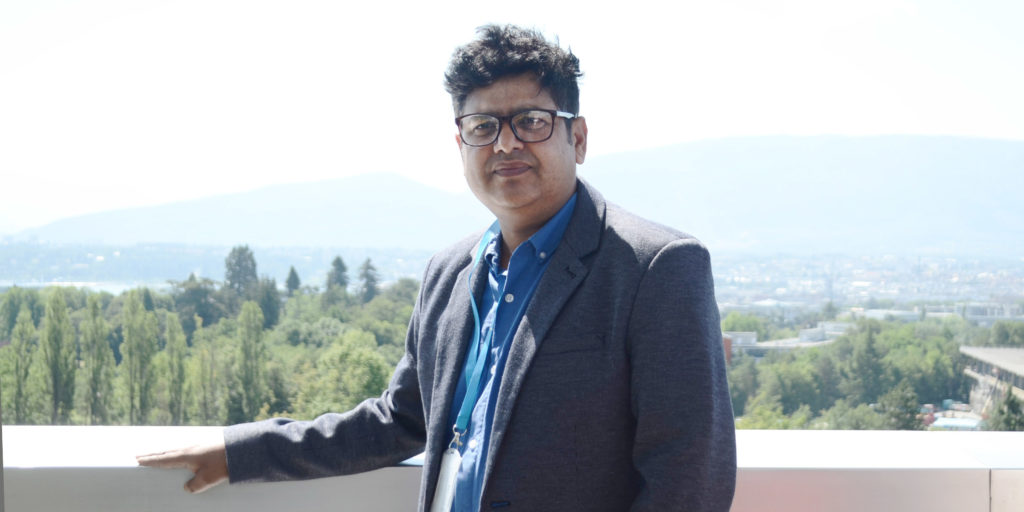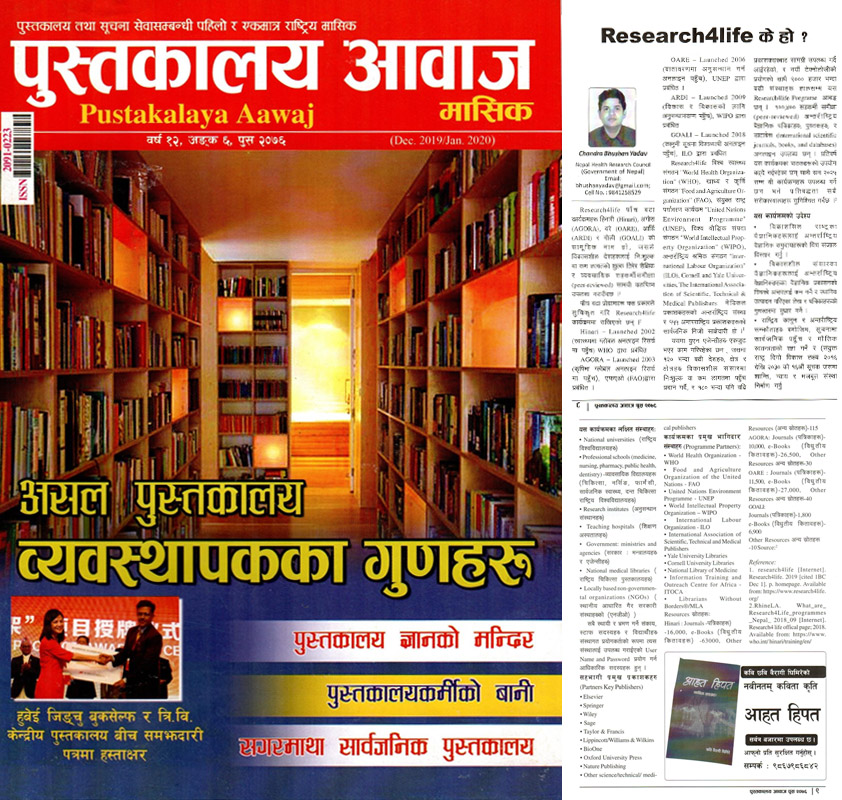From playing cricket to supporting health researchers: Research4Life’s user representative talks about his work as a librarian in Nepal

By Elisa Nelissen
To make sure users’ needs are well-represented, Research4Life has two user representatives. They serve two-year terms and have a crucial role in the Research4Life Advisory Group and Executive Council. Currently, the representatives are Edda Tandi Lwoga from Tanzania and Chandra Bhushan Yadav from Nepal. Earlier this year, Bhushan conducted a Research4Life training in his country – high time for an interview!
“Research4Life runs like oxygen through our library”
Chandra Bhushan Yadav
Bhushan has been working at the Nepal Health Research Council (NHRC) as a Library & Information Officer since 2008. The NHRC provides scientific health information to public health researchers, university faculty and students, nursing students and NGO staff. “I help them find and access documents,” Bhushan explains. “Moreover, I provide them with access to Research4Life and train them to use it. In 2018-2019, Nepal was one of the most active users of Reserch4Life!”
“I am passionate about supporting evidence-based practice. I can connect students, academics, and other researchers with relevant information to create and share new knowledge,” Bhushan says.
Career switch
Bhushan didn’t always spend his days in the library. At age 17, he played his first game as part of Nepal’s national cricket team. After moving to the capital of Kathmandu in the ‘90s, however, Bhushan decided to get a Master’s degree in Library and Information Science at Tribhuvan University. “I wanted to help people and felt I could do that by being a librarian.”
The NHRC has been using Hinari, Research4Life’s health research program, since 2002, but without trained staff, the services Bhushan and his colleagues could offer were rather limited. “I will never forget Lenny Rhine, who trained us to use all of the functionalities of Hinari. After this, me and my colleagues were empowered to promote Research4Life and provide more services around the platform.”
In the sustainability era, I believe evidence-based information is of great importance to contribute to our great planet and the people that inhabit it.”
Chandra Bhushan Yadav
Since Nepal is on the UN list of Least Developed Countries (LDC), the NHRC does not have to pay for journal subscriptions. “Research4Life runs like oxygen through our library. Having access makes us feel like we are rich in terms of articles and documents that are available for academics, health professionals and others.”
Spreading the word
“Through Research4Life, we can easily get access: once you find the study you are looking for, you are taken to their website, where you can download the full-text article.”
“Since the NHRC is the top health science library in Nepal, we also play an active role in promoting Research4Life in the rest of the country.” In the past two years, Bhushan conducted eighteen trainings, the last one just last month. “I put a lot of effort in keeping in touch with the participants, even after the training.” Recently, he also contributed an article on Research4Life in a local information science magazine.

“You know what? I feel that it’s my duty to inform others about Research4Life. In the sustainability era, I believe evidence-based information is of great importance to contribute to our great planet and the people that inhabit it.”





